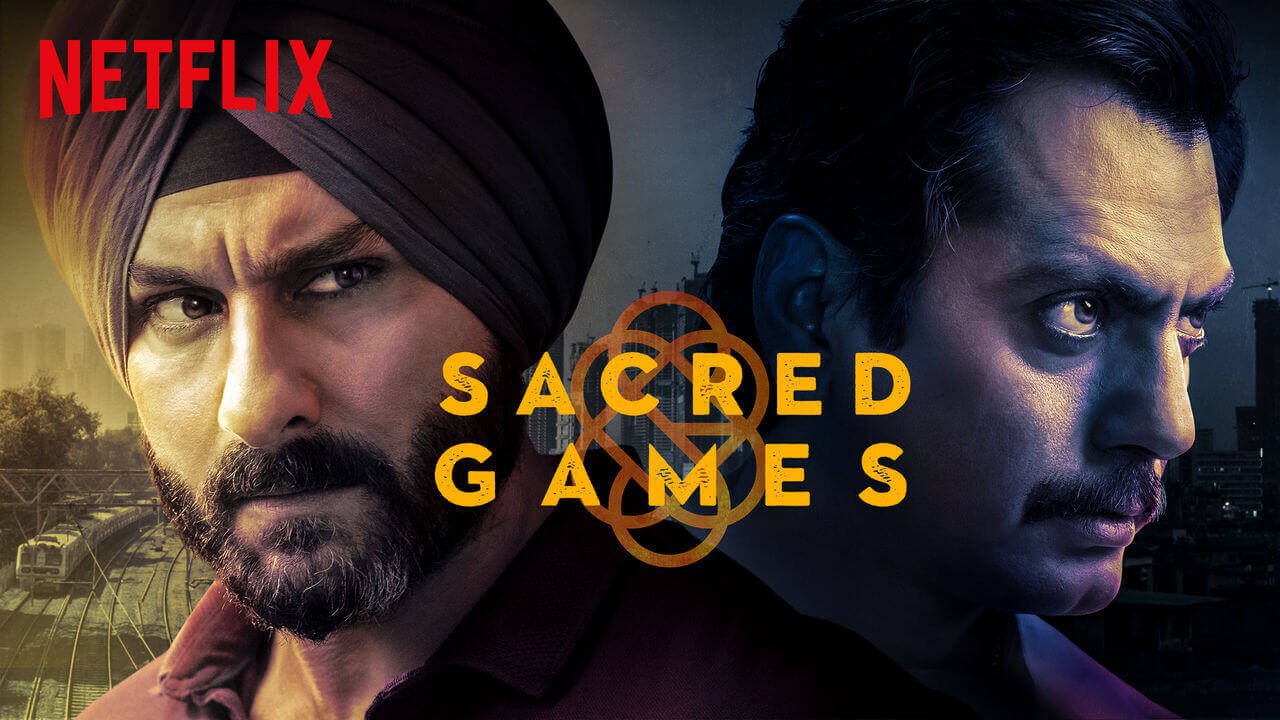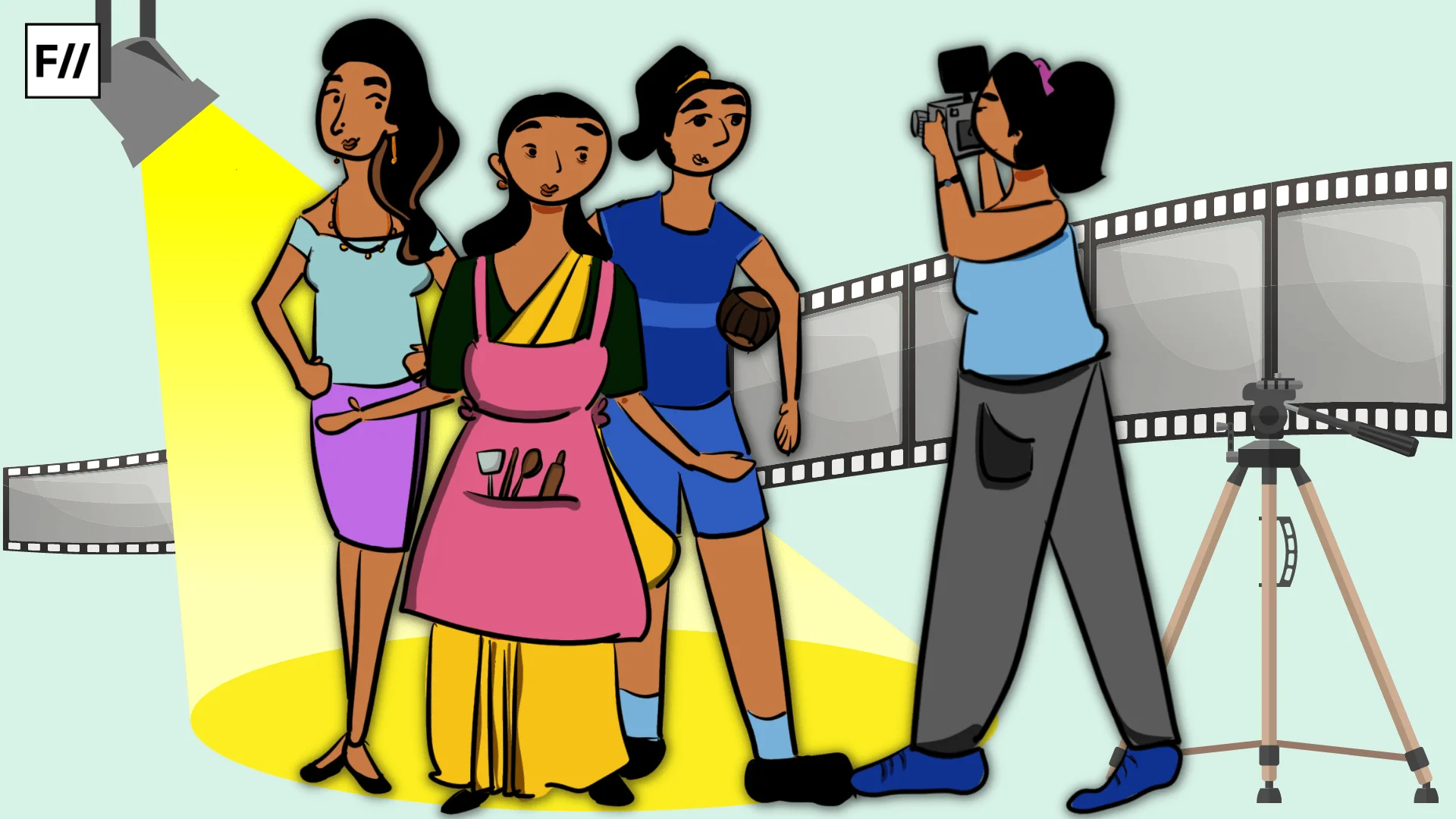Warning: Spoilers ahead.
Welcome to the world of ‘realistic’ filmmaking – where Muslim characters are not allowed to be completely fleshed out and die quickly, Brahmin dude-bros named Gaitonde, Pandit and Trivedi are the last ones left standing in key plot points (they will die later, rest assured), a Sikh protagonist is played by Saif Ali Khan and a trans person played by cis-woman Kubra Sait. Where tokenism is concerned – check!
Sacred Games, based on the novel by Vikram Chandra, and directed by Anurag Kashyap and Vikramaditya Motwane is a glimpse into the gritty underworld of Mumbai. It follows the lives of protagonists crime lord Ganesh Gaitonde (Nawazuddin Siddiqui) and police inspector Sartaj Singh (Saif Ali Khan). This is India’s first foray into an original series on Netflix.
https://www.youtube.com/watch?v=28j8h0RRov4
In the very first episode, Gaitonde contacts Singh and drops a vague hint as to something drastic happening in 25 days, has a brief but intense interaction with Singh and as soon as Singh finds him, Gaitonde shoots himself. But he isn’t done with Singh, or the rest of Mumbai just yet. Even in death, he is a key player in the plot and Singh finds himself falling into a rabbit hole of gang wars and communal violence.
Another heads up: Sacred Games begins with a dog flung out of a high-rise apartment balcony. If you are a dog lover, I would recommend avoiding the first minute. We can hear it cry as it plummets to the ground and the camera pans on the dead body of the dog and an expanding pool of blood. Netflix failed to mention animal cruelty in its trigger warnings.
Also read: Sanju Has ‘Men Will Be Men’ Written All Over It
Praise is due to Kashyap and Motwane for the selection of locations and Alokananda Dasgupta for the soundtrack. The sets and the sounds did perfect justice to the intensity and pace of the storyline, and they lend an air of authenticity to the series. Speaking of authenticity – without the looming threat of censorship on the horizon, characters let loose never-ending strings of epithets. Almost a metaphor of Kashyap’s angry catharsis against the Censor Board.
The very first episode was power packed and leaves you wanting more. With Gaitonde dead and physically absent from the temporal pace of the story, it felt as though he took the life of the series with him when he died. In the following episodes, we are left with Gaitonde’s narration and a trajectory of his past comprising ambition, greed, lust and violence. Gaitonde’s understanding of the institution of religion as a ticking time bomb in India is admirable. When your Brahmin boss, who runs an upper-caste only restaurant, is being a jackass to you, Gaitonde knows the perfect solution. Sliding chicken bones into the Savarna customers’ rice is his perfect solution for chaos.
without the looming threat of censorship on the horizon, characters let loose never-ending strings of epithets.
Gaitonde’s rise to power, obstacles and fall is facilitated by key moments of communal violence and turbulence in India’s polity and history. Sacred Games is set against the backdrop of the Indian Emergency, the case of and debate surrounding Shah Bano, demolition of the Babri Masjid and consequent bombings and Hindu-Muslim riots in Bombay. These events play a vital part in mapping Gaitonde’s trajectory: his upward climb, accumulation of and disposal of allies, manipulation of religious elements, losses and future troubles.
The storyline also examines police encounters – especially the politics behind fake encounters. Sacred Games briefly nods at the corruption within the police force, the cynicism and guilt of the ‘honest cop’ through the character of Sartaj and how Muslims are made vulnerable within ‘due process’ of the state. Disposal on flimsy grounds is swift and justice seems almost impossible.
While mapping state processes, RAW agent Anjali Mathur (Radhika Apte) turns out to be a source of relief. She is a motivated character who does not care for the infestation of male saviouritis. She is assertive and determined to do her job right. She has a penchant for not paying attention to consequences. Lest we think this is the good angel of vengeance, Anjali only focuses on her goals and does not seem to care much for people on the sides. They are pawns in a larger game to her and she has no emotional attachment to spare for them, which is, frankly speaking, a relief. Anjali has no emotional obligations just because she is a woman. All she wants is to be a brilliant agent.
the women have to continuously die in order to motivate the two protagonists.
The storyline of Muslims in the series is as though they are just waiting to be obliterated. Gaitonde’s arch rival is Suleiman Isa (Saurabh Sachdeva) whom he initially battles for the affection of Kuckoo (Kubra Sait). However, the rivalry between the two grows horrific in an ever-expanding cultivation of hatred between Hindus and Muslims. Gaitonde convinces himself that he is Rama and Isa is Ravana and takes it upon himself to kill as many Muslims as possible, including his own men who are obviously troubled with Gaitonde’s increasing Hindu-supremacist behaviour. Isa and the rest of the Muslim characters have not been fleshed out, nor do they get enough screen time to define them as people and display what motivates their actions.
Within this hypermasculine arena of guns and gore, there obviously has to be a plot point where having a particular woman by your side would spell doom for the power (read: manhood) of your rival. Just like that object on our Amazon wish list which we just have to have someday, Gaitonde decides that he has to ‘have’ Kuckoo all to himself, after stealing her from Isa. Kuckoo is, then, successfully ‘his’.
The storyline of Muslims in the series is as though they are just waiting to be obliterated.
Entertainer turned Gaitonde’s companion and lover, Kuckoo seems pleasant, witty, sharp and sure of herself. However, the moment that it is revealed that Kuckoo is a trans person, she loses her personhood and confidence. From there, it is all downhill. She then falls into the trope of ‘tragedy’ and only tragedy, where she feels guilty for wanting to build a life with Gaitonde. She soon commits suicide.
Speaking of which, Sacred Games is a cesspool of fridging. After their personhood is exchanged with property-based value, the women have to continuously die in order to motivate the two protagonists. Nayanika (Geetanjali Thapa) – the actress and ‘kept woman’ of felon Bunty Shinde (Jatin Sarna) has to die to propel the actions of Sartaj Singh. Anjali meets with a swift death for the same reason. Kuckoo dies in order to motivate Gaitonde in his path for personal gain and so does his wife Subhadra (Rajshri Deshpande).
Among the women who are key players, the powerful Kanta Bai (Shalini Vatsa) survives. Karan Johar’s homophobic doofus of a Kanta Bai has been reclaimed within pop culture. This Kanta Bai is a force of nature. She proves to be a useful aid to Gaitonde and helps him rise through the ranks of the underworld. She slowly earns the respect of the patriarchs surrounding her and adopts a maternal relationship with these men. She is unafraid to provide a harsh, honest opinion and tough love when the situation demands. What makes her particularly admirable is the way she uses her power and influence to protect the women around her from masculine violence.
Where acting is concerned, Nawazuddin Siddiqui shines. I want to praise the other actors, but Nawazuddin sets a benchmark that is too high. Radhika Apte manages to follow him, though it shows that it is a task for her. While Saif Ali Khan gets an A for effort, he is subsumed by Nawazuddin’s brilliance. Remember the sweet-faced Rob (Luke Kenny) from Rock On? Well, forget him. Kenny delivers on acting chops and versatility as the terrifying assassin and terrorist Malcolm Mourad.
Karan Johar’s homophobic doofus of a Kanta Bai has been reclaimed within pop culture.
In hindsight, Sacred Games showcased an intense storyline, decent cinematography, audio scores and wonderful acting, but that is all I can say when it comes to praise. The never-ending fridging (4 times in 8 episodes), demonising and disposal of Muslims, repeated references to Hindu scriptures, combined with the occasional insult directed at Rajiv Gandhi (not defending his actions) – condenses into a formula that can make Hindutva forces such as the BJP very happy – which they have already capitalised on.
Featured Image Source: What’s On Netflix
About the author(s)
Friends with half the dogs in the city, can make a career out of procrastinating and when people engage in body shaming, am quick to remind them that I eat patriarchy for breakfast, lunch and dinner.





Shastro mein isse he ru**i rona kha gaya hai. Main protagonist dead (male), his right hand man Bunty dead, Bunty Muslim Rivals (Male again) dead, Paritosh Bhai (Dead), Constable Ketkar (Dead), Tiwari Ji (Dead)!
But Gender Warriors only see dead females!
Two words: equity and representation (fair)
If it was fair then us “gender warriors” don’t have to be here in the first place.
The idea is not to crib about female deaths in a story. The idea is that there were strong, developed and fresh female characters in the show that could have been dealt with so much better. Yet their deaths were so inconsequential and treated with such insignificance, that they were merely motivating factors. It was a brilliant show, and in the middle of the current hypermasculine media in India, a fresh concept which really checked off a lot of requirements for me in what I look for in a show. However, one of its demerits do include anti climatic endings for several essential characters, fridging out the female characters, and all in favour of an unimpressive protagonist.